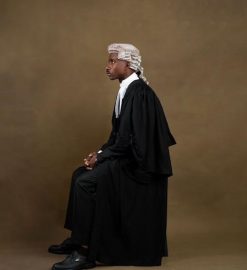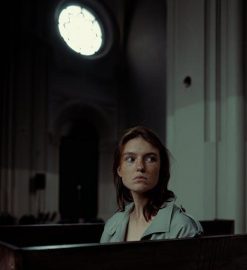fiddler on the roof pdf script

Fiddler on the Roof Script⁚ A Guide to the Musical
This guide provides an in-depth look at the Fiddler on the Roof script, a beloved musical that has captivated audiences for decades. From the story of Tevye and his daughters to the musical’s origins and themes, we’ll explore the script’s rich tapestry, providing insights into its enduring appeal and the power of its message. This guide also offers valuable resources for finding the Fiddler on the Roof script online, making it a must-read for theatre lovers and anyone interested in the world of musical theatre.
The Story of Tevye and His Daughters
The heart of the Fiddler on the Roof script lies in the story of Tevye, a poor Jewish milkman living in the Russian village of Anatevka, and his three daughters, Tzeitel, Hodel, and Chava. Tevye, a devout man deeply rooted in tradition, faces a constant struggle as his daughters challenge the established norms of their community. The story unfolds as Tevye attempts to balance his love for his daughters with his adherence to tradition, creating a poignant and relatable conflict.
Tzeitel, the eldest, falls in love with Motel, a poor tailor, but Tevye initially disapproves due to Motel’s lack of status. This conflict culminates in a moving scene where Tevye negotiates with the matchmaker, Yente, to accept Motel as Tzeitel’s husband. Hodel, the middle daughter, falls for Perchik, a revolutionary student, defying societal expectations by choosing love over tradition. This decision leads to tension between Hodel and her father, culminating in a powerful emotional scene where Tevye acknowledges his daughter’s independence and her right to choose her own path.
Chava, the youngest, further challenges tradition by falling in love with Fyedka, a non-Jewish Russian. This relationship pushes Tevye to his limits, forcing him to confront the evolving world around him and the changing roles of women in society. The story culminates in the forced expulsion of the Jewish community from Anatevka, leaving Tevye and his family to face an uncertain future. The Fiddler on the Roof script masterfully weaves these personal stories into a larger narrative about tradition, change, and the enduring power of love.
The Musical’s Origins⁚ A Journey Through Tradition
The Fiddler on the Roof script draws its inspiration from the rich cultural heritage of Jewish folklore and the writings of Sholem Aleichem, a renowned Yiddish author. Aleichem’s collection of short stories, “Tevye and His Daughters” (also known as “Tevye the Dairyman”), served as the foundation for the musical. These stories, set in the shtetls of Tsarist Russia, depict the life of Tevye, a poor milkman, and his family, navigating the complexities of tradition, faith, and changing times.
The musical, conceived by Joseph Stein, was a collaboration between a talented team of artists. Jerry Bock composed the memorable melodies, while Sheldon Harnick penned the lyrics. The script, a poignant exploration of tradition and change, was meticulously crafted by Stein, weaving together Aleichem’s stories with themes of love, family, and the challenges faced by a community grappling with modernization. The Fiddler on the Roof script, in its journey from literary inspiration to musical masterpiece, reflects the enduring power of tradition and the universal human experience of navigating a changing world.
The musical’s success lies in its ability to capture the essence of Jewish life in a specific time and place, while resonating with audiences across cultures and generations. The Fiddler on the Roof script, through its captivating story and memorable music, continues to inspire and resonate with audiences around the world, offering a timeless testament to the enduring power of tradition and the beauty of human connection.
The Setting⁚ Anatevka, a Village in Tsarist Russia
The Fiddler on the Roof script transports audiences to the heart of Anatevka, a fictional shtetl (small town) nestled within the vast expanse of Tsarist Russia. This quaint village, a microcosm of Jewish life in the early 20th century, serves as the backdrop for Tevye’s story, a poignant tale of tradition, faith, and the challenges of a community on the cusp of change. Anatevka’s charm lies in its tight-knit community, where traditions are cherished and passed down through generations, creating a rich tapestry of cultural heritage.
The village’s setting, a blend of rustic simplicity and vibrant tradition, is meticulously brought to life through the Fiddler on the Roof script. We witness the bustling marketplace, the warmth of family homes, and the communal spaces where Jewish traditions are celebrated. Anatevka’s idyllic atmosphere, however, is shadowed by the looming presence of anti-Semitism and the growing forces of modernization, which threaten to disrupt the delicate balance of life in the village.
The Fiddler on the Roof script captures the beauty and fragility of Anatevka, a world where tradition and change collide. The village serves as a powerful metaphor for the challenges faced by communities grappling with modernization, reminding us of the importance of cherishing cultural heritage while embracing the inevitability of change. Anatevka’s enduring presence in the Fiddler on the Roof script makes it a timeless symbol of resilience and the enduring spirit of a community bound by tradition and faith.
The Characters⁚ A Tapestry of Life in Anatevka
The Fiddler on the Roof script introduces a vibrant cast of characters, each representing a unique facet of life in Anatevka. The heart of the story lies with Tevye, the beleaguered milkman who struggles to maintain his traditions amidst a world in flux. His three daughters, Tzeitel, Hodel, and Chava, each navigate their own paths in a society that is slowly changing. Tzeitel, the eldest, embodies traditional values, marrying Motel the tailor, while Hodel, driven by her own beliefs, chooses to marry Perchik, a revolutionary student. Chava, the youngest, challenges the status quo by falling in love with Fyedka, a non-Jewish Russian.
The Fiddler on the Roof script also features a colorful array of supporting characters who add depth and dimension to the story. Yente, the matchmaker, embodies the traditions of arranged marriage, while the village elder, Lazar Wolf, represents the authority and wisdom of the community. Motel, the tailor, and Perchik, the student, offer contrasting perspectives on tradition and change. The script also introduces the town’s constable, the stern but ultimately fair figure of authority, and the enigmatic Fiddler, a symbol of hope and uncertainty. Each character, from the most prominent to the most minor, contributes to the rich tapestry of life in Anatevka, creating a world that is both familiar and captivating.
The Fiddler on the Roof script masterfully portrays the complexities of human relationships and the challenges of adapting to a changing world. Through its diverse cast, the script explores themes of tradition, family, love, and the enduring power of community. The characters, each with their own hopes, dreams, and struggles, bring to life the vibrant and complex world of Anatevka, making the Fiddler on the Roof script a truly unforgettable theatrical experience.
The Music⁚ A Blend of Tradition and Modernity
The music of Fiddler on the Roof is a harmonious blend of tradition and modernity, reflecting the cultural crossroads of Anatevka. Jerry Bock’s score draws inspiration from traditional Jewish music, incorporating klezmer melodies, folk rhythms, and the haunting sounds of the violin. The score is infused with a sense of melancholy and nostalgia, capturing the bittersweet beauty of a fading way of life. Songs like “Tradition” and “Matchmaker, Matchmaker” showcase the vibrancy and energy of Anatevka’s community, while “If I Were a Rich Man” and “Sunrise, Sunset” offer moments of poignant introspection.
Sheldon Harnick’s lyrics are equally masterful, weaving together humor, pathos, and profound reflections on love, family, and faith. The lyrics capture the essence of Tevye’s struggles and the hopes and dreams of his daughters, while also reflecting the broader anxieties and aspirations of a community on the brink of change. The lyrics are often infused with a sense of irony and wit, highlighting the contradictions and complexities of human experience. The music and lyrics of Fiddler on the Roof work in perfect harmony to create a powerful and enduring theatrical experience, a testament to the enduring power of music to transcend cultural boundaries and connect audiences across generations.
The Fiddler on the Roof score is a testament to the musical genius of Jerry Bock and Sheldon Harnick. The music and lyrics seamlessly blend tradition and modernity, creating a score that is both timeless and relevant. The songs are not only beautiful and memorable, but also deeply moving, capturing the essence of the story and the characters’ emotional journeys. The Fiddler on the Roof score is a key element of the musical’s enduring popularity, a testament to the power of music to transcend time and culture.
The Themes⁚ Tradition, Change, and the Power of Love
Fiddler on the Roof explores the timeless themes of tradition, change, and the enduring power of love. Tevye, the central character, grapples with the changing world around him, clinging to the traditions of his Jewish heritage while witnessing the erosion of his community’s way of life. As Anatevka experiences the tremors of modernization and the rise of anti-Semitism, Tevye finds himself caught between the familiar comfort of tradition and the uncertain allure of progress. This tension between the old and the new is played out through the choices made by Tevye’s daughters, each representing a different perspective on the future.
The musical masterfully portrays the complexities of love in a changing world. The love stories of Tevye’s daughters, Tzeitel, Hodel, and Chava, each represent a different facet of love’s power. Tzeitel’s arranged marriage embodies the traditional values of family and community, while Hodel’s love for Perchik, a revolutionary student, represents a yearning for change and personal fulfillment. Chava’s forbidden love for a non-Jewish man, Fyedka, raises questions about the boundaries of tradition and the limits of acceptance. Through these different love stories, Fiddler on the Roof explores the multifaceted nature of love, its ability to both bind and liberate, and its capacity to challenge the status quo.
The themes of tradition, change, and love are intertwined throughout the Fiddler on the Roof script, giving the musical its enduring relevance. The story’s exploration of the human condition, its struggle to reconcile tradition with progress, and its celebration of the power of love transcends cultural boundaries and speaks to the universal experiences of humanity. The musical’s enduring appeal lies in its ability to resonate with audiences across generations, reminding us of the importance of both preserving our heritage and embracing the inevitability of change.

Where to Find the Fiddler on the Roof Script⁚ Online Resources
For those eager to delve into the world of Fiddler on the Roof, accessing the script is readily achievable through a variety of online resources. Websites dedicated to scripts and musicals, such as Scripts.com, offer comprehensive access to the Fiddler on the Roof script, allowing readers to explore the dialogue, lyrics, and stage directions in detail. Online libraries and archives, like those provided by universities and cultural institutions, often house digital copies of scripts, including Fiddler on the Roof, which can be accessed for research and educational purposes.
Furthermore, online retailers like Amazon.com and other digital book platforms provide downloadable versions of the Fiddler on the Roof script, allowing for convenient access and portability. Websites dedicated to musical theatre enthusiasts, such as Playbill.com, often feature articles and resources related to Fiddler on the Roof, including links to script downloads and performance information. Additionally, online communities dedicated to musicals, such as the subreddit r/musicalscripts, offer a platform for sharing and discussing scripts, including Fiddler on the Roof, providing a valuable resource for enthusiasts.
These online resources provide a wealth of options for accessing the Fiddler on the Roof script, allowing individuals to explore its intricacies and appreciate its enduring impact on the world of theatre. Whether for research, study, or simply a love of the musical, the internet offers a convenient and accessible gateway to the world of Fiddler on the Roof.
The Fiddler on the Roof Script⁚ A Detailed Breakdown
The Fiddler on the Roof script unfolds as a tapestry of interwoven narratives and captivating musical numbers. It begins with Tevye’s introduction, a humble milkman in the Jewish village of Anatevka, grappling with the changing world around him. The script delves into the complexities of tradition and modernity as Tevye navigates the arranged marriages of his daughters, each with their own aspirations and desires. The script masterfully intertwines humor, pathos, and drama, creating a captivating blend of lighthearted moments and profound reflections on societal shifts.
The script’s detailed breakdown reveals a rich tapestry of characters, each with their unique personalities and motivations. From the wise and traditional Yente, the matchmaker, to the spirited and independent Hodel, Tevye’s daughters, each character contributes to the script’s intricate narrative. The script’s dialogue is both witty and insightful, capturing the essence of life in Anatevka, while the lyrics of the musical numbers are filled with emotion and poignant observations on love, family, and the changing times. The detailed breakdown of the script allows readers to understand the nuances of each scene, the complexities of the characters, and the powerful message conveyed through the musical numbers.
From the opening scenes depicting the vibrant traditions of Anatevka to the heart-wrenching climax of the village’s forced expulsion, the Fiddler on the Roof script unfolds as a powerful testament to the enduring human spirit amidst adversity. The detailed breakdown of the script provides a deeper understanding of the play’s themes, characters, and enduring legacy.
The Significance of the Fiddler⁚ A Symbol of Hope and Uncertainty
The Fiddler on the Roof script, a timeless masterpiece of musical theatre, features a recurring symbol that resonates deeply with the story’s themes⁚ the fiddler himself. This enigmatic figure, perched precariously on the roof of Tevye’s home, embodies both hope and uncertainty, mirroring the precarious existence of the Jewish community in Anatevka. The fiddler’s music, a blend of traditional melodies and improvisational flourishes, reflects the delicate balance between tradition and change that defines the characters’ lives.
The fiddler’s presence serves as a constant reminder of the fragility of their world. The very act of playing on the roof, a precarious perch, evokes a sense of vulnerability and the ever-present threat of disruption. Yet, the fiddler’s music also carries a sense of defiance and resilience, a testament to the community’s enduring spirit in the face of hardship. As Tevye grapples with the changing world around him, the fiddler’s music provides a sense of solace and a reminder of the enduring power of tradition.
The fiddler’s ambiguous presence, both a beacon of hope and a symbol of uncertainty, adds depth and complexity to the script’s narrative. He serves as a potent reminder of the community’s precarious existence, their struggle to maintain their traditions amidst a rapidly changing world, and their unwavering determination to hold onto their identity in the face of adversity.



Leave a Reply
You must be logged in to post a comment.